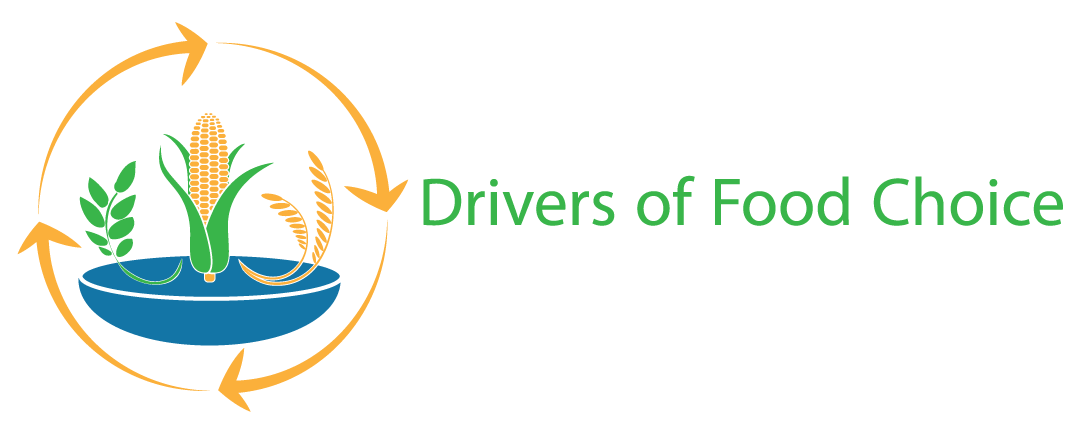Demand Creation

Description
Several DFC projects have noted that values may play a central role in the changing food choice behaviors of those experiencing the nutrition transition, including rapid social and economic changes in LMICs (e.g., climate change-related impacts on both agrarian and non-agrarian livelihoods and public sectors; industrialization; urbanization). Rapid social change and the uncertainty it brings might result in avoidance of uncertainty and reverting to what is known, a heightening of curiosity and exploring/tasting new things or embracing change as a means to self-development. Rapid social and economic transitions not only impact family and community structures, livelihoods, access to services, but also the local food cultures through changes in food environments and the role of food in daily routines. The food environment changes include exposure to new foods (packaged foods or soft drinks), marketing (e.g, brand names), quantity (e.g., larger portions of meat or sweets; larger portions overall), or quality of foods (e.g., ultra-processed versus fresh) and ways of eating (e.g. on the go, more meals, eating beyond satiety etc.), which can have various consequences for diet quality and health.
While the environment may structure food choice, individuals are not passive actors. Some scholars argue that values undergird decision making and consumption behaviors, including food choice decision making. Values are beliefs about end-states of existence and modes of behaviors. Values exist at the cultural and individual level to organize how societies and individuals meet their biological and social needs, including how food is produced, acquired and consumed. Values may be expressed explicitly through symbols or implicitly through ‘just the way things are’. Rapid social and economic development changes how values are expressed (ie., symbolism) or the ordering of values with regards to their importance, including values around food.
Culturally, food rules about what to eat, how much to eat have developed over centuries, and often in response to historical realities of chronic or cyclical food shortages. For example, ideal body size may express these historical realities in ways that body sizes that show abundance are preferred. In many LMICs, being overweight is believed to be a marker of wealth and health. Food decisions about what to eat, how much to eat, and perceptions about ideal body size may be changing but not as rapidly as food environments and food access. Rapid changes to food environments that include greater physical and economic access to energy-dense and nutrient-poor foods may make some populations more vulnerable to obesity, than those who have not experienced chronic or cyclical food shortages, due to longstanding history of deprivation. In these situations, the cultural pre-disposition to overconsumption in times of plenty[1] and idealized identities of large body sizes, coupled with easier access to foods high in refined carbohydrates, sodium, and saturated fats may increase a community’s risk for obesity and NCDs.
There is a scientific and programmatic need to understand how cultural and human values guide food decisions; and how rapidly changing economic and food environment alter the link between food and human values. The DFC projects and secondary data are well suited to explore these topics.
Our projects have delved into the role of geographic location (urban food culture’s impact on rural food culture), migration and changing livelihoods, changing cultural norms around social connectedness and food traditions, the private sector, intergenerational transfer of knowledge and preference (e.g., Girard, Wertheim-Heck, Schreinemachers), and perceptions of health and attractiveness of body size as factors that inform motivations for the acquisition and consumption of certain foods and food behaviors.
Aims
1) Identify the human and cultural values undergirding food choice and food behaviors and how they are expressed in different contexts
2) Discuss the role of context and potential actions (e.g., marketing regulations, social marketing campaigns) in harnessing these existing values to improve food choice behaviors.
Activities
- Webinar: Changing values and food choice: implications for demand creation in LMIC
Speakers: Christine Blake, Valerie Flax, Matty Demont, Salome Bukachi
Moderator: Edward A Frongillo
- Poster Presentation: Shiny Drew, Christine Blake, Eva Monterrosa, Krystal Rampalli, Abdullah Nurus Salam Khan, Ligia Reyes, Salome Bukachi, Mariah Ngutu, Edward Frongillo, Elyse Iruhiriye, Amy Girard, Paula Dominguez-Salas. “How Schwartz’ Basic Human Values Influence Food Choices in Kenya and Tanzania.” Current Developments in Nutrition, Volume 6, Issue Supplement_1, June 2022, Page 479
- Journal Publication: Blake CE, Monterrosa EC, Rampalli KK, Khan ANS, Reyes LI, Drew SD, Dominguez-Salas P, Bukachi SA, Ngutu M, Frongillo EA, Iruhiriye E, GIrard AW. “Basic human values drive food choice decision-making in different food environments of Kenya and Tanzania” Appetite, Volume 188, September 2023, 106620
